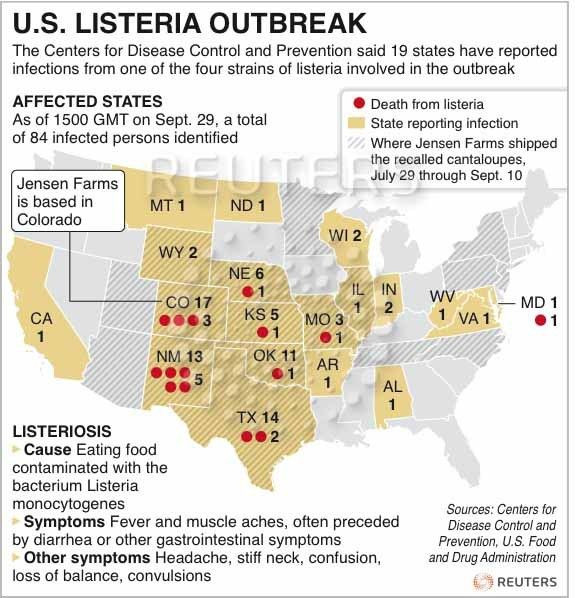Caramel Apples Cause Multistate Listeria Outbreak

The Centers for Disease Control and Prevention recently issued a public advisory to US consumers regarding commercially produced, pre-packaged caramel apples which may be contaminated with Listeria. A multistate outbreak of listeriosis was associated with consumption of this autumn treat. As of Dec 18, four people have died and 26 more are still ill in the hospital due to listeria infection. Majority of the patients diagnosed with the bacteria reported consumption of pre-packaged caramel apples before they were brought to the hospital.
Pre-packaged caramel apples are seasonal products during Halloween. They have a shelf life of more than one month. The public is advised to dispose of packed caramel apples or tasty apples that have not been consumed to prevent the possibility of ingesting listeria contaminated food. Retailers may also consider discarding pre-packaged caramel apples that are still being sold.
The US Food and Drug Administration has collaborated with the CDC for a joint investigation on the outbreak to determine the source of the contamination. Reported cases of listeria infection came from 10 US states. In Minnesota, health officials have identified two caramel apple brands associated with the infection of the four ill Minnesotans. To distinguish cases related to the listeria outbreak, public health authorities use DNA 'fingerprinting' of the bacteria causing the infection. Pulse.net is a national laboratory system that connects cases of foodborne illnesses to a possible epidemic. It has been used since 1996 in the investigation and detection of foodborne diseases.
Listeriosis is a serious bacterial infection caused by eating food contaminated with bacterium Listeria monocytogenes. Around 1,600 people in the US get infected with listeria every year. In 2011, 147 people had listeriosis due to consumption of cantaloupe contaminated with the bacteria. Thirty-three people in Colorado died in the outbreak.
Adults with weak immune system, newborns, and pregnant women are most vulnerable to this disease. People ill with listeriosis usually have fever, muscle pains, gastrointestinal problems and unexplained fatigue. Those who are experiencing vital symptoms of listeriosis should seek medical help soon. The risk of food poisoning may be reduced by observing safe food guidelines in selection, preparation, storage and consumption.




















